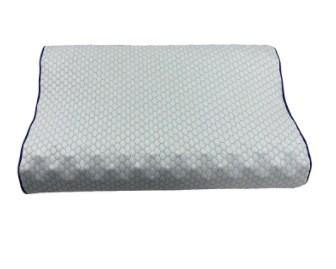Traveling, whether for business or pleasure, can often be a physically demanding experience, particularly when it comes to finding a comfortable position to rest during long journeys. The contour travel pillow has emerged as a popular solution to this common travel dilemma, with its design specifically tailored to provide the best possible support for the neck and head. The question arises: does the contour travel pillow indeed incorporate ergonomic design principles to offer optimal comfort and support?
The answer lies in the very nature of ergonomics, which is the study of designing products that fit the human body and its movements. Ergonomic design in the context of a travel pillow would mean that the pillow's shape, material, and adjustability are all carefully considered to reduce strain and promote proper alignment of the neck and head during rest.
Contour travel pillows are designed with a curved or molded shape that follows the natural curvature of the neck. This design allows the pillow to cradle the head and provide support along the neck's natural contour, reducing the strain that can be caused by traditional, flat-surfaced pillows. The use of memory foam in many contour travel pillows is another ergonomic feature, as it conforms to the individual's head and neck shape, providing personalized support.
Moreover, the best contour travel pillows often come with adjustable features, such as Velcro straps or buckles, which allow users to customize the level of firmness and the exact position of support. This adjustability is a clear reflection of ergonomic design, as it enables the pillow to adapt to different body types, head sizes, and personal preferences for sleeping positions.
The portability of contour travel pillows is also an ergonomic consideration. These pillows are typically lightweight and compact, making them easy to carry and use in various travel environments, from airplane seats to train berths. The ease of use and transportability of these pillows contribute to their ergonomic design by ensuring that travelers can maintain proper neck and head support without adding unnecessary burden or discomfort.
Furthermore, the materials used in contour travel pillows are often chosen for their softness, breathability, and hypoallergenic properties. These characteristics not only enhance comfort but also contribute to the overall ergonomic design by reducing the risk of allergies and ensuring that the pillow's surface remains cool and comfortable, even during extended periods of use.
In conclusion, the contour travel pillow is a prime example of ergonomic design in the realm of travel accessories. Its curved shape, customizable adjustability, choice of materials, and portability all work together to provide the best possible support for the neck and head, catering to a wide range of users and their unique needs. By understanding the importance of ergonomic design, manufacturers of contour travel pillows have been able to create a product that not only offers comfort but also promotes proper body alignment and reduces the risk of strain and discomfort during travel.



